Hello Readers,
With Awards Season drawing to a close, I am looking back on this year’s most popular films in nominations to see what awards they actually walked away with from the big ceremonies. There were a few surprises this year including Emma Stone winning Best Actress for her role in Poor Things at the Academy Awards and I’m Just Ken from Barbie winning over Billie’s song at the Critics Choice Awards.
Unfortunately, many of the winners this season are from films featuring straight white characters in English. I have chosen the main American/British ceremonies as my markers but the films with POC/queer characters or not in English did not do as well in these categories. Napoleon is the exception, I believe it was widely panned due to its historical inaccuracies and confusing story line.
Oppenheimer (2023)
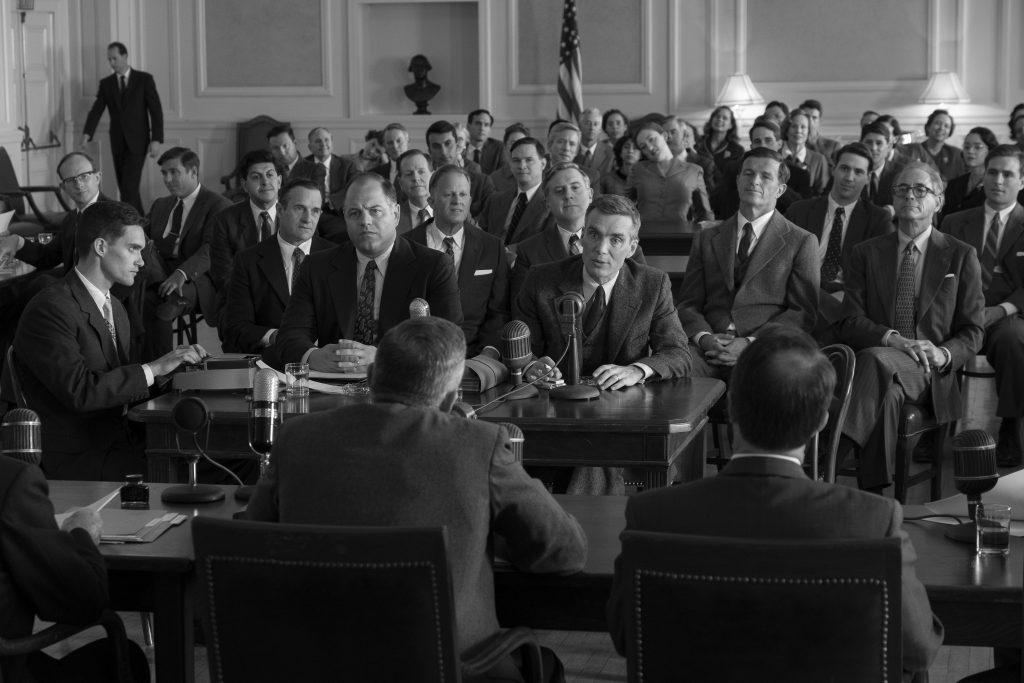
Oscars: 13 nominations and 7 wins
BAFTAs: 13 nominations and 7 wins
Critics Choice Awards: 13 nominations and 8 wins
Golden Globes: 8 nominations and 5 wins
SAG Awards: 4 nominations and 3 wins
Oppenheimer did about as well as expected winning over half its nominations at all the ceremonies. It is an America-centric film with the cast, crew and funding coming from the US featuring an important American event and invention. Christoper Nolan is a well-respected director in the film industry and along with his production team, has been responsible for some of the most visually interesting and complex films of recent years including Inception (2010), Interstellar (2014) and Tenet (2020). Robert Downey Jr won all of his nominations for the film along with the editing, score and director nominees sweeping their categories. Personally, I think there were other films that deserved some of these awards but I am pleased for the team particularly Emma Thomas winning the Oscar alongside Nolan for Best Picture.
Barbie (2023)

Oscars: 8 nominations and 1 win
BAFTAs: 5 nominations and 0 wins
Critics Choice Awards: 18 nominations and 6 wins
Golden Globes: 9 nominations and 2 wins
SAG Awards: 4 nominations and 0 wins
Unfortunately Barbie was largely panned at most of the awards. It managed to secure decent nominations and a whopping 18 at the Critics Choice Awards but did not deliver in terms of wins. I believe where Critics were concerned, it was a hit but with such a strong year, other films appealed to a wider range of voters. I believe this to be the case at the Oscars and Globes. Barbie was a well-produced film with so many details but with being marketed towards women and starring a toy doll that was mostly successful in the US, I don’t think this film quite had the reach. Ironically, Oppenheimer with an American plot, largely white cast and upsetting plot details did rather well. Take that as you will about the state of the country.
The Holdovers (2023)
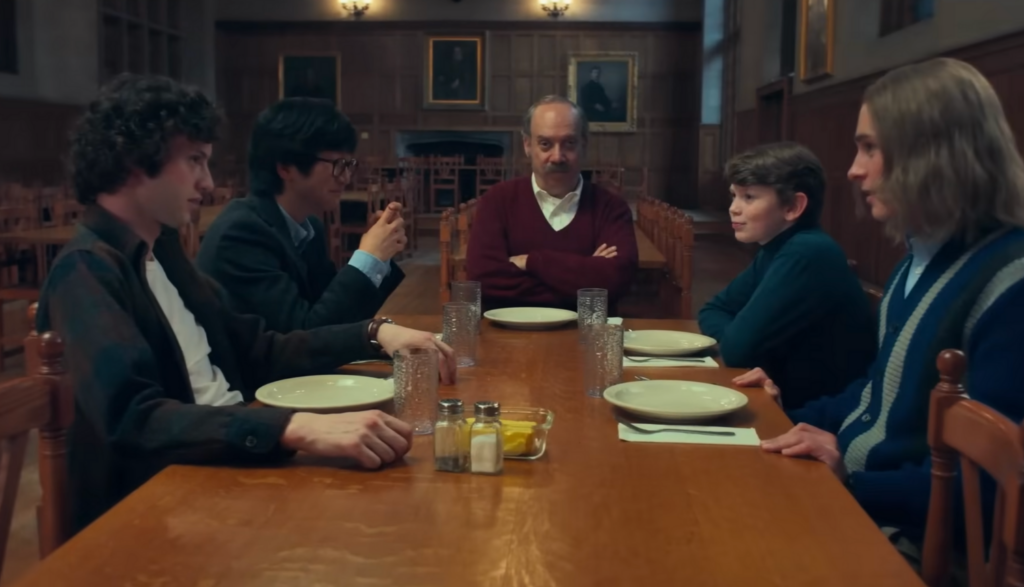
Oscars: 5 nominations and 1 win
BAFTAs: 7 nominations and 2 wins
Critics Choice Awards: 8 nominations and 3 wins
Golden Globes: 3 nominations and 2 wins
SAG Awards: 2 nominations and 1 win
This film did well in chosen areas such as acting but was largely ignored in others. The core cast really brought the humour and raw emotion of the film to life. This film was also set in an elite part of American society on the East Coast with mainly white characters but perhaps the boarding school element was just not as much of a hit among the voters. The inclusion of Mary as a main character despite her lower status as the school cook was a well-meaning attempt to connect with other elements of society but I am not sure it 100% worked. I did enjoy the film and the story but I think it appealed more to my demographic. In another weaker year, I think this film could have taken home more. It certainly would have done well in a less diverse voting pool.
American Fiction (2023)

Oscars: 5 nominations and 1 win
BAFTAs: 1 nomination and 1 win
Critics Choice Awards: 5 nominations and 1 win
Golden Globes: 2 nominations and 0 wins
SAG Awards: 3 nominations and 0 wins
Many people have declared this film an important piece of cinema due to the themes of the plot. Perhaps white and non-black voters just could not relate to the concepts that this film was trying to portray. It was certainly punchier in its themes of blackness and racial divide than the Holdovers but brought humour to it. The film was very interesting and although the book/film featured was over the top it was trying to demonstrate how people want to hear black voices. It was maybe this metaphor that people did not pick up on and took the film at face value. To me, this film was one of the biggest snubs on the list due to its important ideas and complex characters. I am glad its wins were for the script as that is what made the film shine.
Poor Things (2023)
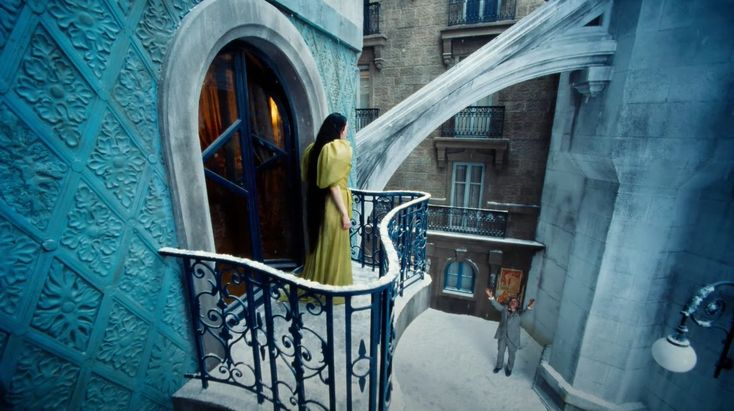
Oscars: 11 nominations and 4 wins
BAFTAs: 11 nominations and 5 wins
Critics Choice Awards: 13 nominations and 1 win
Golden Globes: 7 nominations and 2 wins
SAG Awards: 2 nominations and 0 wins
I still have yet to watch Poor Things despite it being available on streaming and its award record can possibly show why. It made a big splash in nominations but has lacked in terms of wins. Most awards have been for Emma Stone’s portrayal of Bella Baxter and the design teams (costumes, production, hair and makeup and VFX). The plot or film overall has not had much success. Without having seen it myself, I cannot judge too much but the strong and graphic sex scenes may have something to do with it. I believe Americans to still be prudish when it comes to sex on screen, never rewarding films with an R rating highly at awards shows. Brits maybe equally as so with the BAFTAs all being for the design teams. It had good reviews when it came out but only winning one award at the Critics Choice Awards demonstrates its reception among the experts.
Past Lives (2023)

Oscars: 2 nominations and 0 wins
BAFTAs: 3 nominations and 0 wins
Critics Choice Awards: 3 nominations and 0 wins
Golden Globes: 5 nominations and 0 wins
SAG Awards: 0 nominations/wins
This film did not manage to pick up an award in the award shows I have chosen to highlight but was successful at others. This film was very much about relationships and characters rather than visually stunning VFX or exciting action sequences. It was also told in a mix of Korean and English which may have put some people off. I personally liked the film but I wouldn’t be voting it over others in its categories. Again, being such a strong year especially for foreign language cinema was a downfall of this film. It was great to see female stories be told with Celine Song directing and Greta Lee starring.
Anatomy of a Fall (2023)
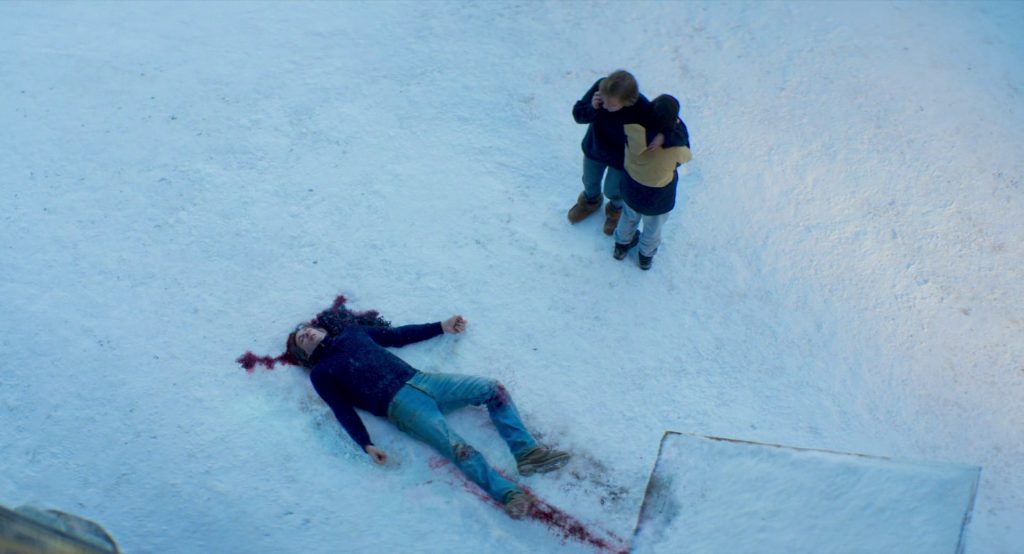
Oscars: 5 nominations and 1 win
BAFTAs: 7 nominations and 1 win
Critics Choice Awards: 3 nominations and 1 win
Golden Globes: 4 nominations and 2 wins
SAG Awards: 0 nominations/wins
I have recently watched this film and I did enjoy it. The plot was pacy with the court room scenes framing the relationship between Sandra and her husband. Being mostly in French and again with no big action scenes/VFX, the film was largely panned. It was awarded for its screenplay though and being written by a husband and wife duo was probably the reason. Sandra Hüller in the lead was a very strong choice but she did not show emotions in the traditional ways which was one of the arguments she had with her husband before his death. The film was left open ended in terms of whether he died by suicide or other means but it was right to show that this was not important at the end of the day.
The Zone of Interest (2023)
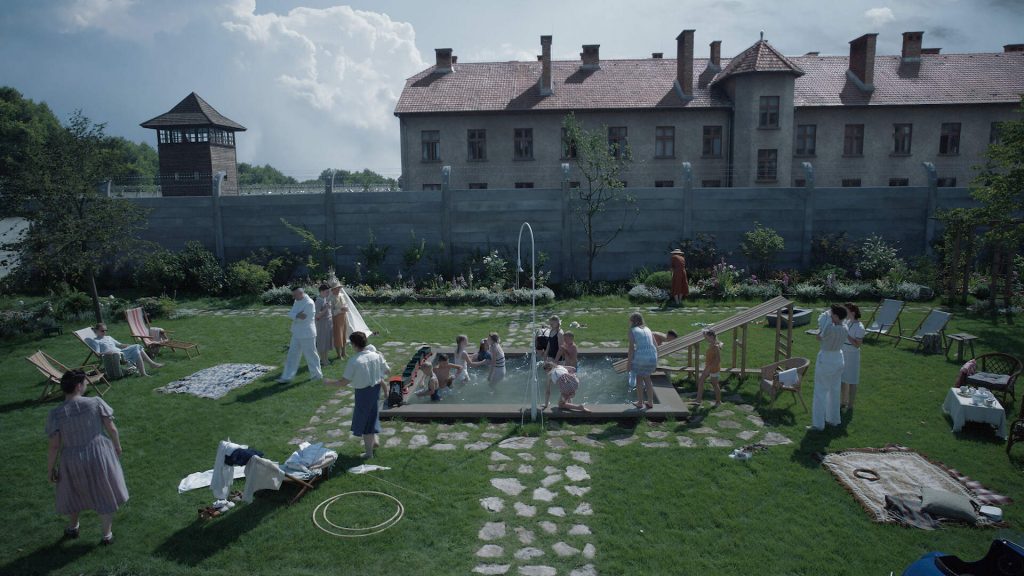
Oscars: 5 nominations and 2 wins
BAFTAs: 9 nominations and 3 wins
Critics Choice Awards: 1 nomination and 0 wins
Golden Globes: 3 nominations and 0 wins
SAG Awards: 0 nominations/wins
This film was also largely ignored at this years awards picking up awards for its sound and best foreign language film. The fact that it was filmed in Poland in German with the Nazis at the centre probably had a lot to do with it. There are a lot of Jewish Americans in Hollywood but whether the film was a painful reminder or simply didn’t appeal to other voters, I am not sure. With the Israel/Palestine conflict going on at the moment, a film showing the oppression of Jewish people maybe didn’t hit the mark. It has to be said that the director and producers of the film are Jewish and gave a very strong speech about war at the Oscars. I have not yet seen the film and I would not say that I am particularly excited to, given its content.
Napoleon (2023)
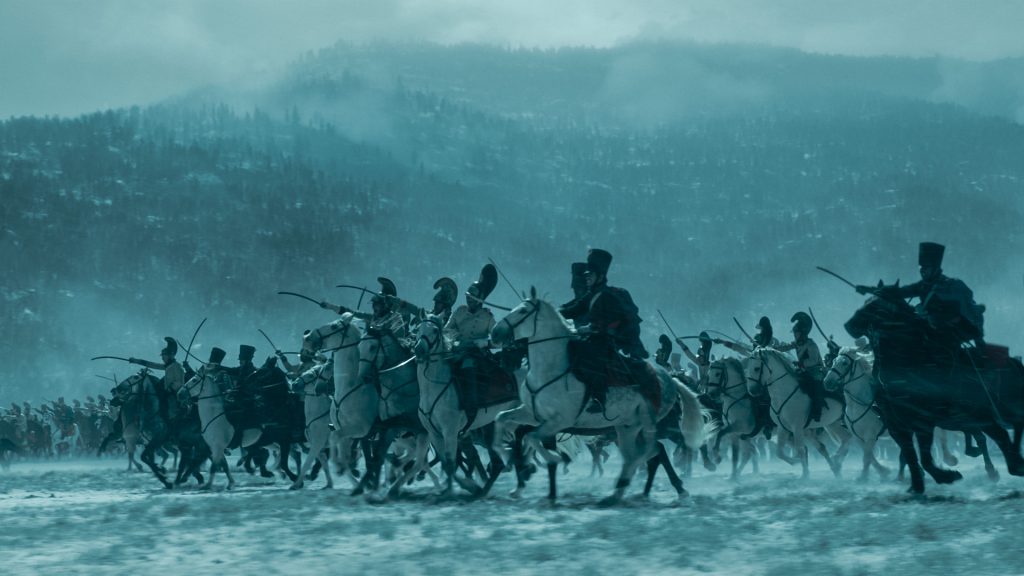
Oscars: 3 nominations and 0 wins
BAFTAs: 4 nominations and 0 wins
Critics Choice Awards: 1 nomination and 0 wins
Golden Globes: 0 nominations/wins
SAG Awards: 0 nominations/wins
As mentioned above, this was the most surprising pan of the awards given its director and historical story. Ridley Scott is not usually an awards director but many of his films have been critically acclaimed and hailed by audiences as great cinema. Napoleon did not manage to do this. It angered the French with its British/American cast and great historical inaccuracies. I also found the plot confusing, jumping around different dates like it had somewhere to be. The relationship between Napoleon and Josephine was meant to be a strong point but they spent most of the film hating each other and all the sex scenes were rough and abusive. I think Vanessa Kirby did what she could with the script but I did not feel any warmth from Napoleon towards her even when he hadn’t left her for a younger, fertile woman. The scant nominations were for the costumes, production and VFX all of which looked great but unfortunately the plot/acting could not support it.
Maestro (2023)
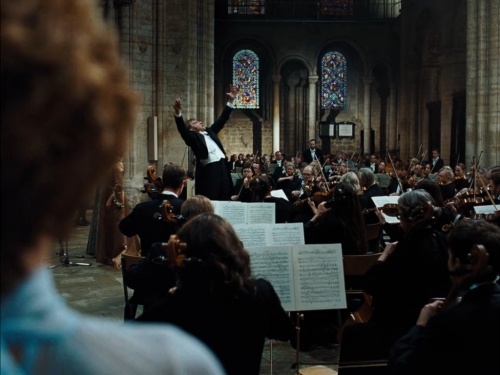
Oscars: 7 nominations and 0 wins
BAFTAs: 7 nominations and 0 wins
Critics Choice Awards: 8 nominations and 0 wins
Golden Globes: 4 nominations and 0 wins
SAG Awards: 2 nominations and 0 wins
In nominations, Maestro did respectably well but did not manage to pick up an award. It was a very strong year but I think that Leonard Bernstein being bisexual/into men and women was not well received with voters and particularly cheating on his wife in their later years. There was a controversy about the prosthetic used to give Bradley Cooper a more Jewish looking nose but it was approved by the family. Personally I think Bradley looked more like Leonard with his own nose. The film was a good watch, I saw it at the London Film Festival last year and while an enjoyable film, I have not reached to watch it again on streaming. Carey Mulligan was strong as always but she got drowned out by other stronger performances in her categories from Da’Vine Joy Randolph and America Ferrera. An enjoyable film but it couldn’t hold its own this year.
Killers of the Flower Moon (2023)
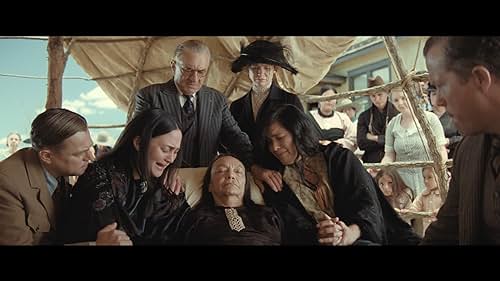
Oscars: 10 nominations and 0 wins
BAFTAs: 9 nominations and 0 wins
Critics Choice Awards: 12 nominations and 0 wins
Golden Globes: 7 nominations and 1 win
SAG Awards: 3 nominations and 1 win
I am almost surprised at the panning that this film received given its powerhouse combo of Martin Scorsese, Leonardo DiCaprio and Robert De Niro. In the past this trio would have swept prizes but with the topic of the murder of Native Americans, they couldn’t make the leap. The only awards came for Lily Gladstone as Best Actress. While she was good, I am not sure her performance in the film was actually enough to secure the win. There may have been white guilt at play for the treatment of Native Americans or just an inability to relate to the culture. The film itself could have been done better in my eyes with too many characters to keep track of and most of the focus being on the few white male characters. If this film had been directed by a female Native American with Scorsese producing, I think there could have been a different result. It would have also made more sense as a limited series.
Happy Watching,
Robyn
